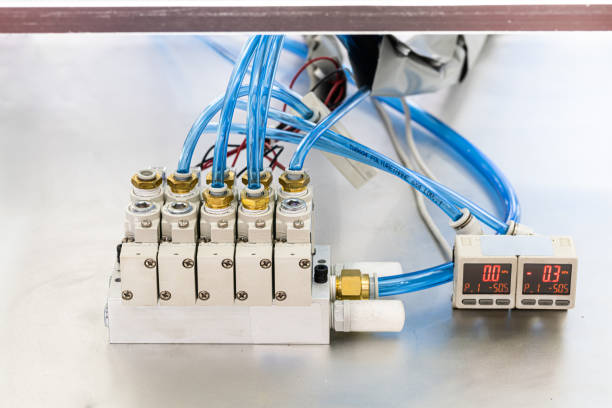In Australia, as in many other countries, electrical systems are vital in powering homes, businesses, and industries. These systems need to be reliable, efficient, and safe to ensure the smooth functioning of various activities. Three-phase testing is of utmost importance to ensure the safety and reliability of electrical systems. Three-phase testing refers to evaluating and monitoring the electrical performance of three-phase systems commonly used in large power distribution networks.
One significant reason for the importance of three-phase testing is the increased power demand in modern society. As technology advances and industries expand, electricity needs continue to grow. Three-phase systems provide a more efficient way of distributing electricity than single-phase systems, as they can handle larger loads and transmit power over longer distances. However, the complexity of three-phase systems requires regular testing to ensure they function optimally.
Another reason for the importance of three-phase testing is to ensure the safety of electrical systems. Faulty or damaged electrical systems can pose a significant risk of fire, electrocution, or other accidents. Three-phase testing helps identify potential issues, such as loose connections, insulation breakdown, or voltage imbalances, which can lead to system failure or hazardous conditions. Identifying and rectifying these issues early on can significantly reduce the risk of accidents.
Three-phase testing also plays a crucial role in preventing power outages and downtime. Power interruptions in commercial and industrial settings can result in substantial financial losses due to halted operations and compromised productivity. Regular testing can detect any abnormalities in the electrical systems, allowing for timely repairs or maintenance to prevent unexpected failures. This proactive approach helps minimize downtime and ensures uninterrupted power supply, contributing to businesses’ overall efficiency and profitability.
Three-phase testing is essential for complying with regulatory standards and industry requirements. Electrical systems must meet specific standards to ensure the safety of individuals and properties. Regular testing helps demonstrate compliance with these standards. It provides evidence of due diligence in maintaining electrical safety. Compliance with regulations is a legal requirement and a moral responsibility to protect the well-being of employees, customers, and the general public.
In addition to safety and compliance, three-phase testing is vital for optimizing electrical systems’ performance and energy efficiency. Over time, electrical systems can experience wear and tear, resulting in decreased efficiency and increased energy consumption. Regular testing identifies inefficiencies, such as voltage drops or power imbalances, which can be rectified to improve system performance. By optimizing the electrical systems, energy consumption can be reduced, leading to cost savings and environmental benefits.
Learn more: https://qualitytestandtagmelbourne.com/three-phase-testing/
In conclusion, three-phase testing plays a fundamental role in the reliability, safety, and efficiency of electrical systems in Australia. The increasing power demand, the need for safety, prevention of downtime, compliance with regulations, and optimization of performance are why regular testing of three-phase systems is of utmost importance. By investing in three-phase testing, individuals, businesses, and industries can ensure the smooth functioning of electrical systems, minimize risks, and contribute to a sustainable and prosperous society.
